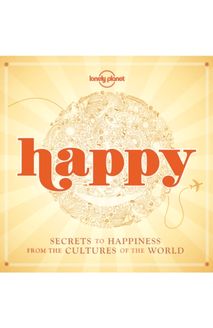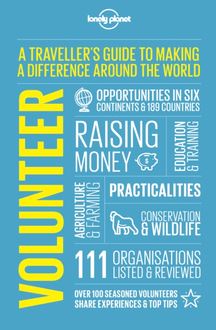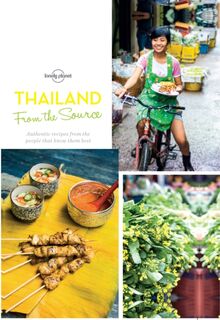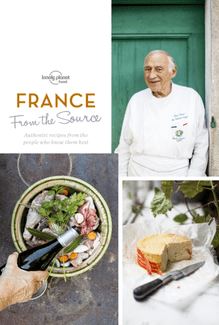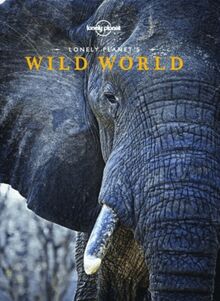-
 Univers
Univers
-
 Ebooks
Ebooks
-
 Livres audio
Livres audio
-
 Presse
Presse
-
 Podcasts
Podcasts
-
 BD
BD
-
 Documents
Documents
-
- Cours
- Révisions
- Ressources pédagogiques
- Sciences de l’éducation
- Manuels scolaires
- Langues
- Travaux de classe
- Annales de BEP
- Etudes supérieures
- Maternelle et primaire
- Fiches de lecture
- Orientation scolaire
- Méthodologie
- Corrigés de devoir
- Annales d’examens et concours
- Annales du bac
- Annales du brevet
- Rapports de stage
La lecture à portée de main
Vous pourrez modifier la taille du texte de cet ouvrage
Découvre YouScribe en t'inscrivant gratuitement
Je m'inscrisDécouvre YouScribe en t'inscrivant gratuitement
Je m'inscrisEn savoir plus
Vous pourrez modifier la taille du texte de cet ouvrage
En savoir plus

Description
Sujets
Informations
| Publié par | Lonely Planet |
| Date de parution | 01 novembre 2013 |
| Nombre de lectures | 0 |
| EAN13 | 9781742208640 |
| Langue | English |
| Poids de l'ouvrage | 1 Mo |
Informations légales : prix de location à la page 0,0500€. Cette information est donnée uniquement à titre indicatif conformément à la législation en vigueur.
Extrait
SECRETS TO HAPPINESS FROM THE CULTURES OF THE WORLD
THE SECRETS
FOREWORD
INTRODUCTION
MIND
Put down in words what you really want
Prioritise your mental well-being over your financial success
Let your resentments, worries and sadness go
Accept yourself (and others) for who you are
Have a goal and work towards achieving it
Accept and celebrate the transience of life
Learn to be self-sufficient in order to feel empowered
Forgive – don’t let grudges poison you
Put your trust in others and be trusted in return
Take a long view rather than expecting instant gratification
Be grateful for what you have
Come to terms with your own mortality
Free yourself from self-induced, self-limiting inhibitions
Keep your mind stimulated
Consider your words before someone takes them to heart
Bring your mind back to real time
Draw on humour and new experiences to get on with your life
Spend some time alone to reconnect with your life’s direction
Rid yourself of physical and mental clutter and get your life back under control
Acknowledge your influences
Accept that you aren’t always in control and have faith
BODY
Exercise to produce endorphins, and get a physical and mental workout
Take the time to appreciate good food and drink
Take some time out to recharge your batteries
Learn to be comfortable with your body
Realise your connection to the natural world
Connect your whole being – mind, body and breath
Talk to your neighbours to reconnect with your community
Face your fears to overcome them
Allow yourself to luxuriate
Make some silent time to allow your head to clear
Get outside whenever possible
Express yourself physically
Go without to appreciate what you have
Dress yourself up to create beauty where you see none
Get things off your chest with like-minded others
Discover what’s deep inside with a physical challenge
SPIRIT
Shut down business as usual and go a bit wild
Take life less seriously
Realise your connection to place
Wash away the old and welcome the new
Spend time with family to understand your context
Embrace the painful past with a light heart
Refresh your perspective and seek the good in life
Embrace your heritage to better understand yourself
Discover the pleasures of generosity
Recognise and celebrate your accomplishments
Find the ultimate contentment in friends, family and a good book
Contribute, be a useful member of society, in order to feel part of something greater than yourself
Enjoy life now because you never know what’s ahead
Appreciate the Gift of Family
Give away something you value to appreciate how lucky you are
Moderate your life and be flexible
Release your inner child and play
Realise your interconnectedness with others
HAPPINESS & TRAVEL
Foreword by Maureen Wheeler, Lonely Planet Co-Founder
There is a famous story about two children who set out to find a bluebird; they travel all over the world only to find it in their own backyard when they return home. The bluebird, of course, represents happiness and the moral of the story is that happiness is found when you stop looking for it. Travelling to find happiness is probably always doomed to failure, despite all those romantic movies which claim otherwise, because happiness comes in those moments when you are not consciously trying to be happy. The moments of sheer joy come when you forget yourself and focus on something other than your own feelings or desires or goals.
When you travel to another country where everything is unfamiliar, your awareness is heightened, you notice every little detail because you are trying to understand and make sense of everything that is going on around you. The person you are at home, in your own environment, becomes less important, less central to this new story, you are an observer and this sense of being an outsider intensifies your responses and emotions.
Travel takes you to places in the world that are heart-stoppingly beautiful, exposes you to scenes of horrific deprivation and challenges you to accept and understand that the world is composed of both. But the moments that remain with you, when you look back and remember your wanderings, are those moments when you simply allowed time to unfold. Watching a sun set or rise, wandering around a ruined city or ancient temple, meeting someone who is as curious about you as you are about them, exchanging impressions with other travellers – these are all part of the everyday travel experience, and yet these everyday incidents will be the fragments that make up the whole journey, that stay with you and inform or change your perspective when you return to that other, ‘real’ life.
The opportunity to look at another culture, to see the world from another viewpoint, to see yourself as someone foreign, is the adventure of travel. The freedom, the sense of possibilities, the absence of the routine mundanity of normal life, is the excitement of travel. But happiness in travel comes from the moments when you are aware how lucky you are to be in that place, at that time, and how wonderful the world is.
INTRODUCTION
HAPPINESS. One word, nine letters, roughly seven billion definitions, one for each person on the planet.
Researchers are learning a lot these days about the intersection between emotions and neuroscience. Everyone’s level of happiness is about 50% genetically determined (what the experts call your ‘happiness set point’), a further mere 10% comes from external factors, and the rest comes from how we perceive our circumstances. Yes, money buys us some happiness, they say, but only to the point where we have security – a roof over our heads, a doctor when we’re sick, a bit of entertainment now and then. Travellers take note: almost a dozen recent studies agree that experiences bring more long-term happiness than do possessions.
So, if we’re so smart about happiness, why isn’t everyone on the planet who has reached this level of security perfectly happy? Across the developed world, people have better medical care, fewer preventable diseases and longer life spans than ever before. In the United States, the pursuit of happiness is a constitutional right. But while many Western countries top the lists of overall happiest countries, many also rank highest in individual rates of depression and other mental health disorders.
The same researchers who study happiness will tell us it’s not the flashy car or the new shoes that will make us happy in the long run. In fact, those expectations do us a disservice. Instead, they’ve found that it’s some of the most basic aspects of life found in every culture that bring us the most joy – connection, mindfulness, gratitude, play.
While this book offers a few specific examples, these experiences happen all over the world in billions of ways: devoting time to honour family ties ( p99 : Tsagaan Sar in Mongolia), being still with the present moment ( p43 : zazen meditation in Japan), giving thanks ( p33 : Thanksgiving in the USA), or just shaking our collective booties ( p109 : Crop Over festival, Barbados).
One of the unspoken gifts of travel is it allows us the chance to open our mind, eyes and soul to how different cultures invite happiness into their lives, whether those countries are some of the wealthiest in history ( p111 : hygge in Denmark), or are struggling to put food on the table (p000: dressing up in Mali).
Whether you’ve travelled halfway around the world, to the nearest national park or a heritage street festival in your own city, you’ve probably felt it, that feeling of … was it happiness? Belonging? Joy, perhaps. Athletes might call it ‘flow’ and spiritual masters might tell you you’ve glimpsed the faintest echo of enlightenment. You might have recognised it in the simple pleasure of the Italian passeggiata, when you joined the entire village in the main piazza for a social evening stroll ( p69 ) or when you became part of a group t’ai chi lesson at dawn along the river in Shanghai ( p57 ).
So, does Lonely Planet aim to be the authority on world happiness? Heck no. We’re still working on it ourselves. We know there are around seven billion ways to define happiness, but here are 55 we just happen to like. They range from physical pleasures like dancing in the Carnaval parades in Brazil ( p91 ) to giving back to your community during the Chilean ritual of ‘la minga’ work days ( p113 ), or accepting the impermanence of life while building a sand mandala in Tibet ( p23 ).
Experiencing other cultures can remind us just how much we appreciate taking the time to breathe deeply or laugh with family and friends. Many of us have heard of the Japanese tea ceremony, but did you know about its worldaway counterpart, the Ethiopian coffee ceremony ( p59 )? Like its Japanese cousin, the Ethiopian custom reminds us to stop and smell the coffee beans and enjoy time spent together.
Like zakat in Islamic countries or jimba in Buddhist lands, the tiny island nation of Tokelau in the South Pacific has a ritual of inati ( p113 ), sharing their daily fish catch with those who need it most. And all cultures might want to take a lesson from Bhutan, where the nation defines success not solely by earnings, but by the population’s gross national happiness level ( p15 ).
When you arrive back at home, perhaps your life has changed ever so slightly. Maybe after a visit to Italy you take a 15-minute stroll before dinner every now and again. Perhaps you invite a friend over for coffee and just talk and laugh for hours, productivity be damned. Or, who knows, you might now start your mornings dancing naked in front of your cat to that calypso music you picked up in the Caribbean. But your eyes are now open and there’s no going back, only passing on what you’ve learned.
MIND
IF YOU DON’T KNOW WHERE YOU’RE GOING, THAT’S WHERE YOU’LL END UP
SECRET PUT DOWN IN WORDS WHAT YOU REALLY WANT
Tradition Shinto ema (votive plaqu
-
 Univers
Univers
-
 Ebooks
Ebooks
-
 Livres audio
Livres audio
-
 Presse
Presse
-
 Podcasts
Podcasts
-
 BD
BD
-
 Documents
Documents
-
Jeunesse
-
Littérature
-
Ressources professionnelles
-
Santé et bien-être
-
Savoirs
-
Education
-
Loisirs et hobbies
-
Art, musique et cinéma
-
Actualité et débat de société
-
Jeunesse
-
Littérature
-
Ressources professionnelles
-
Santé et bien-être
-
Savoirs
-
Education
-
Loisirs et hobbies
-
Art, musique et cinéma
-
Actualité et débat de société
-
Actualités
-
Lifestyle
-
Presse jeunesse
-
Presse professionnelle
-
Pratique
-
Presse sportive
-
Presse internationale
-
Culture & Médias
-
Action et Aventures
-
Science-fiction et Fantasy
-
Société
-
Jeunesse
-
Littérature
-
Ressources professionnelles
-
Santé et bien-être
-
Savoirs
-
Education
-
Loisirs et hobbies
-
Art, musique et cinéma
-
Actualité et débat de société
- Cours
- Révisions
- Ressources pédagogiques
- Sciences de l’éducation
- Manuels scolaires
- Langues
- Travaux de classe
- Annales de BEP
- Etudes supérieures
- Maternelle et primaire
- Fiches de lecture
- Orientation scolaire
- Méthodologie
- Corrigés de devoir
- Annales d’examens et concours
- Annales du bac
- Annales du brevet
- Rapports de stage
